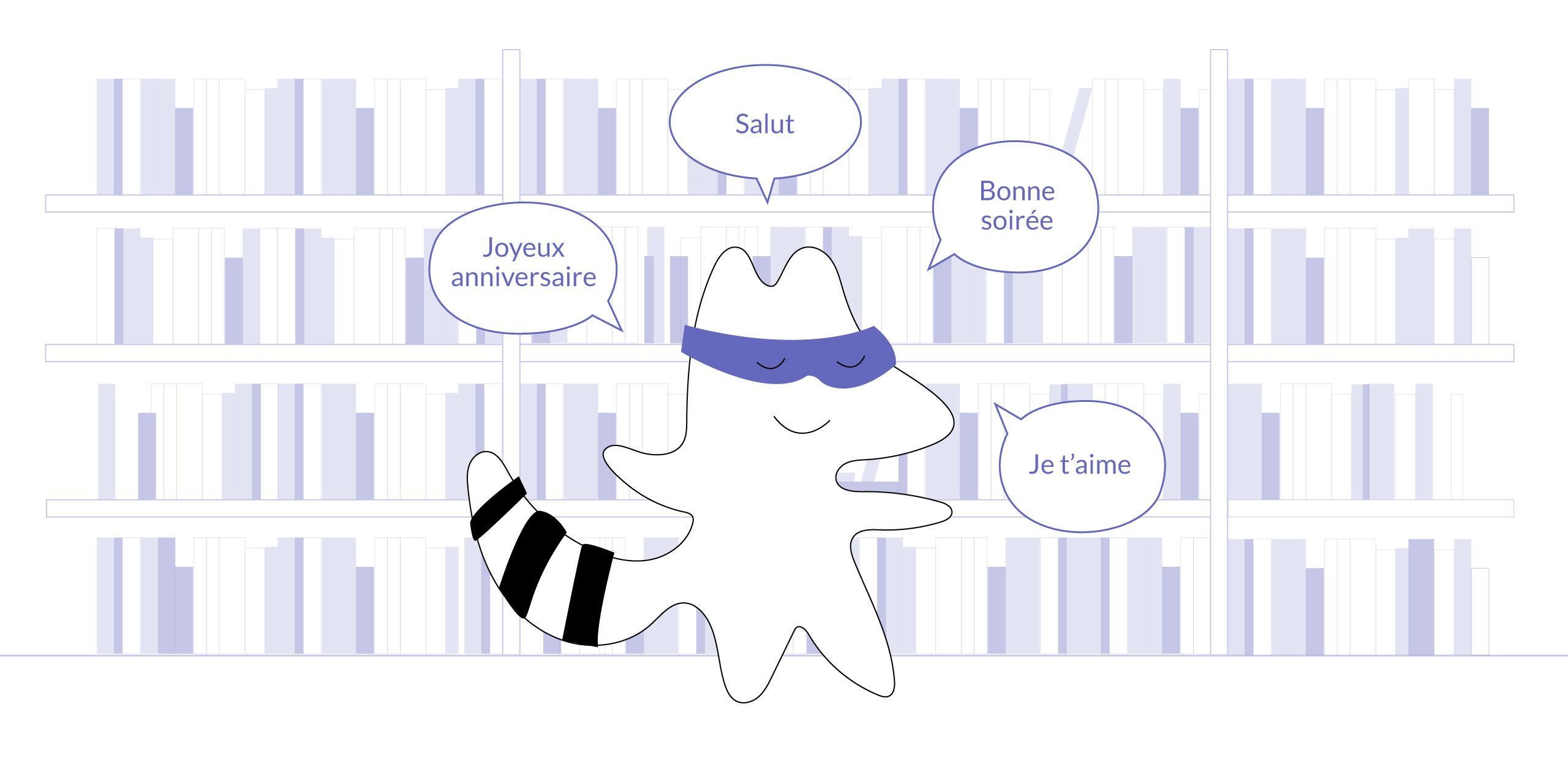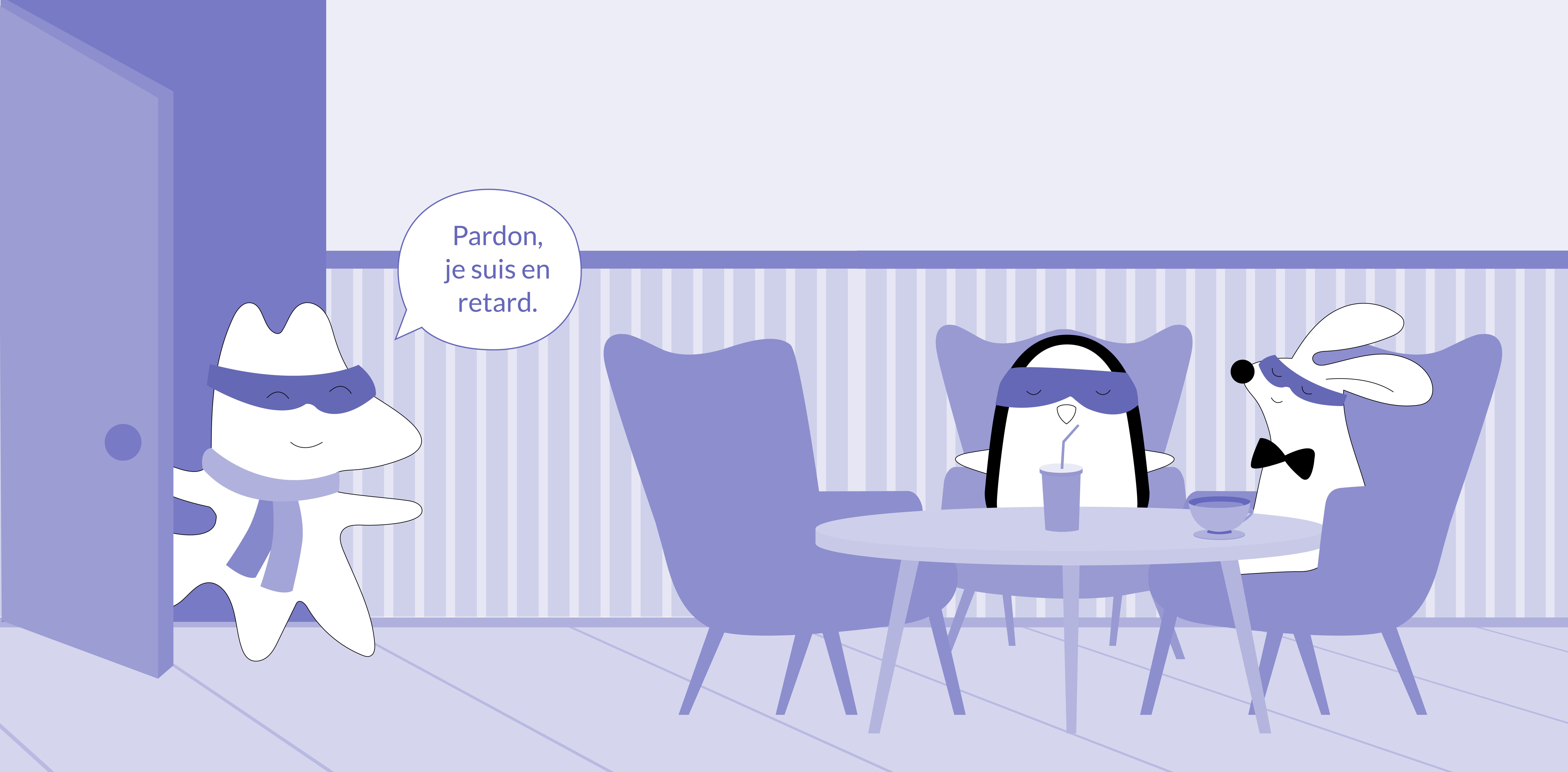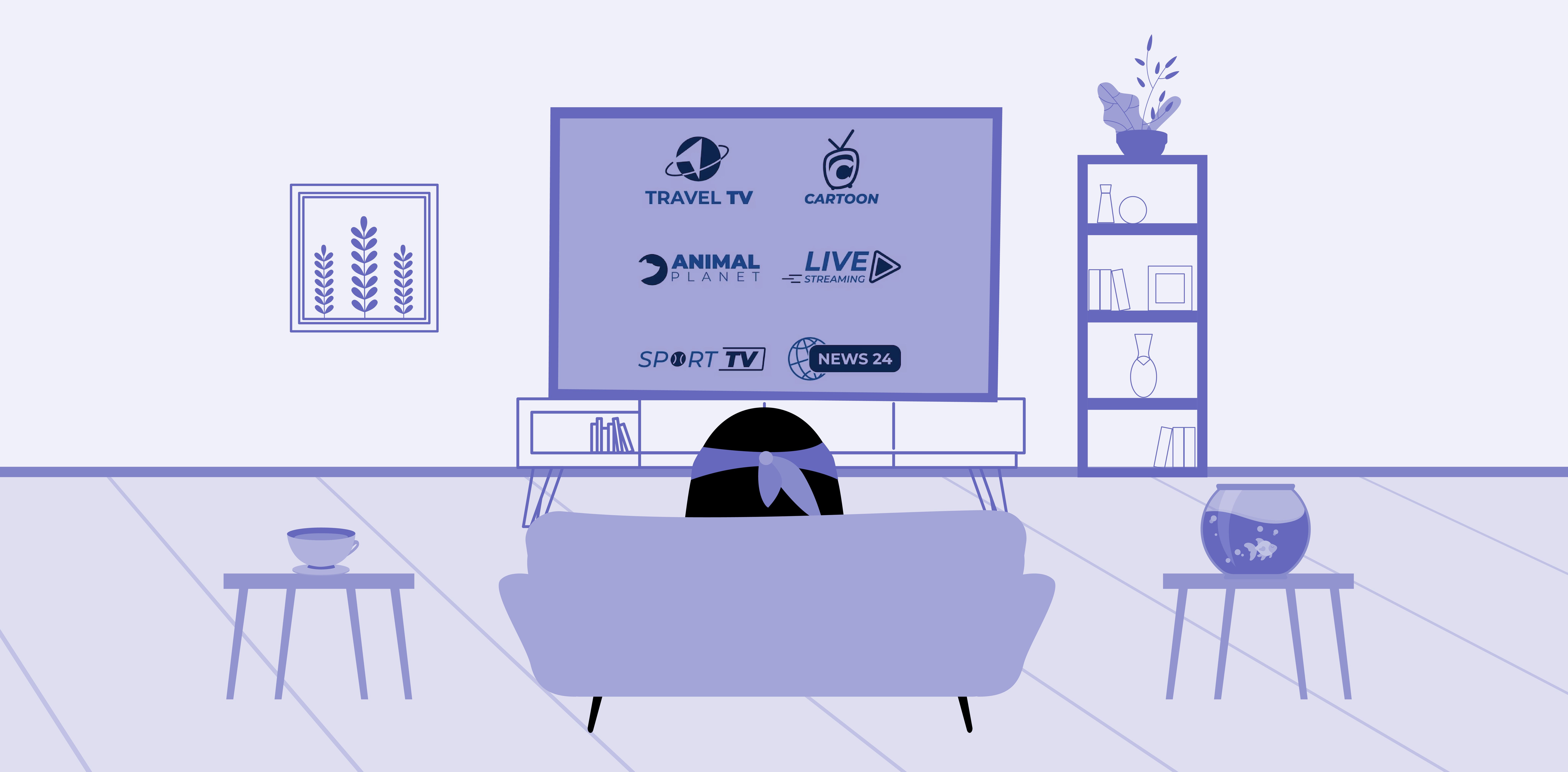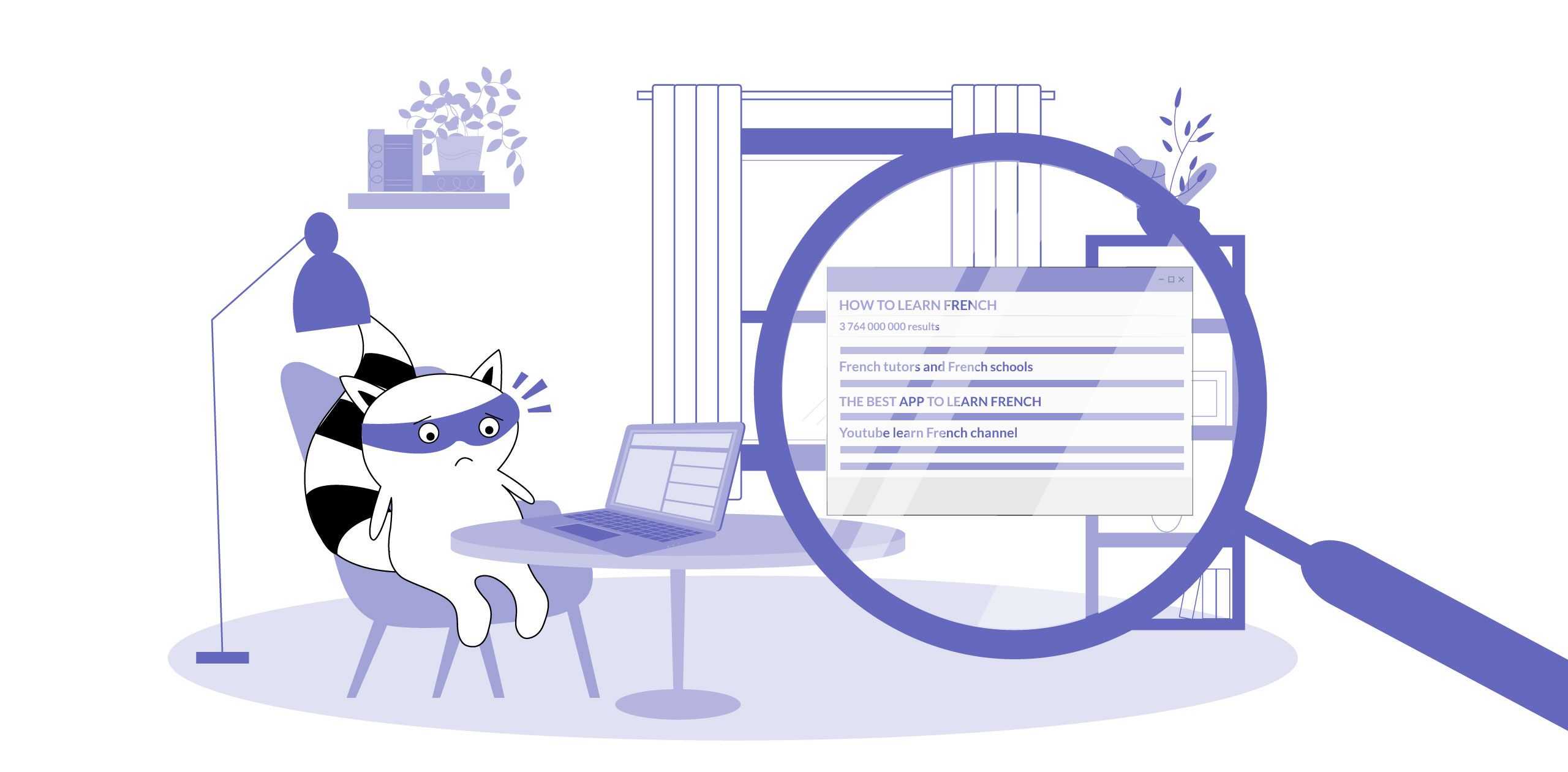
French is one of the most frequently learned languages in the world and for many reasons - it’s spoken in many international organizations, used as an official language in many countries around the world, and it’s great to learn French for traveling. Thanks to all these reasons, this beautiful, romantic language can be a great choice when it comes to learning something new.
And even though it can seem a bit weird, French is actually not that hard to master; that is if you know where to start. French online courses, local classes, lessons with a tutor, language immersion courses - as you can see, there are quite a few ways to learn French. Finding what’s best for you is the key.
In this article, we want to give you all the basic information you need to start speaking French, including where to find beginner French classes, what to look for in a French course or any other learning method, and what to focus on at the start.
Whether you're a complete beginner or have some previous experience with learning French, there's something for everyone in this guide. Read on.
Learn French with Langster
Determine Your Purpose
Before you start learning French, it’s important to determine your purpose. Do you want to speak French for travel, business, academic reasons, or just a general interest in other languages? The purpose is necessary for finding your motivation - and without it, you may give up learning right from the start.
The more clear your purpose is, the easier it might be for you to learn - this way, you will understand what to focus on.
If you’re traveling to a French-speaking country, for example, you may want to focus on French pronunciation and learning useful phrases. And if you want to use French in a business setting, you’ll need to learn the more formal language and practice your speaking skills.
Here are some of the most common reasons why people take French lessons:
- To be able to communicate with French people or other native speakers while traveling
- To improve their career opportunities in a global market
- To be able to read and understand French texts
- To gain a better understanding of French literature and culture
- To prepare for studying in a French-speaking institution
Each of these will require different skills and levels of knowledge from you - for example, while for traveling, you might require just basic French grammar knowledge, for academic purposes you will need to know French at least at an intermediate level.
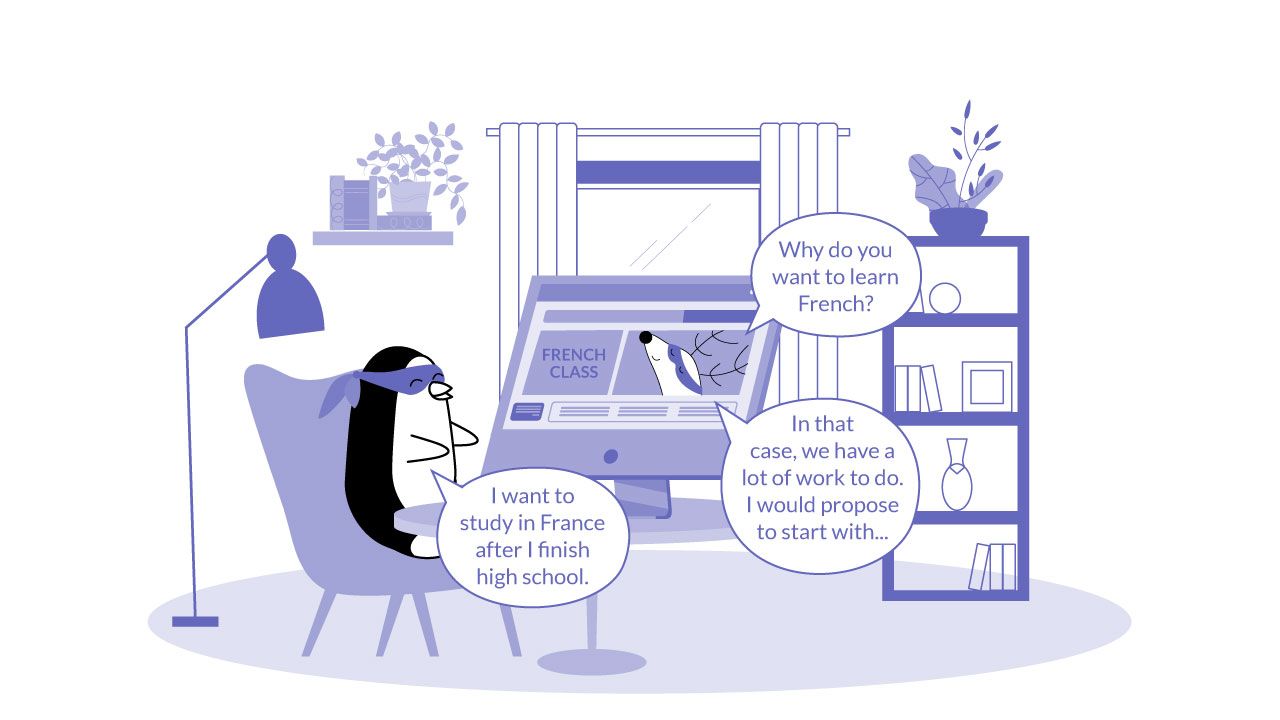
Take a Proficiency Test
If you’re not sure what your level is, it may be helpful to take a proficiency test to determine your starting point. This will help you choose the right level of French lessons and give you an idea of what you need to work on.
There are a few different types of levels that proficiency tests measure, but the most common are the CEFR (Common European Framework of Reference for Languages) and the ACTFL (American Council on the Teaching of Foreign Languages) scales.
CEFR is a scale that describes six levels of language proficiency, from A1 (beginner) to C2 (native speaker level). ACTFL is a scale that describes five levels of language proficiency, from Novice Low to Distinguished.
Both of these scales are widely accepted, and most language schools and programs use one or both of them to measure their students’ progress.
If you want to learn French, you can take a proficiency test online - most of them are available completely for free. You can find them, for example, on the websites of the language schools which often have many free resources.
Find the Right Method
Once you know your purpose, it’s time to find the right method to learn French. There are many different ways to learn a language, and what might work for one person might not work for another. It’s important to find the method that’s best for you, and to stick with it.
Some popular methods include local French beginner courses, online classes, private lessons, and immersion courses.
- Online courses are very popular, as they’re affordable, convenient, and usually offer a lot of flexibility. If you have some previous experience with learning French, an online course might be a good option for you.
If you’re an absolute beginner, be careful when looking at online French lessons - read reviews and make sure the platform and course content you’re interested in is appropriate for novices.
- Attending local group classes is a great way to meet other learners and to get more personal attention from the teacher. It is also often more affordable than private French lessons.
The disadvantage of this method is that in a group class, the teacher can’t often give you their undivided attention, which means you might not get the best correction on your French pronunciation.
- Private French lessons are a great option if you want to focus on your individual needs and get more one-on-one attention from the teacher.
Many French beginners start with private lessons and then switch to group classes or solo learning - this way, you get a good foundation for your further learning process.
- Immersion courses are a great way to learn a language quickly, but they can be quite expensive. They usually involve living in a French-speaking country for a certain amount of time.
These are also often not appropriate for complete beginners - if you are just starting your French-learning journey, you might need more French lessons before you move to the A2 or B1 level before trying the immersion courses for yourself.
- You can also find a lot of helpful resources on the internet, such as online dictionaries, in-depth grammar guides, and podcasts. These are often completely free, which is a huge perk for many learners on a budget.
However, note that learning by yourself is not always a perfect way to study French from the beginning. If you are a novice, it’s better to mix solo learning with French classes, which gets us to the next point:
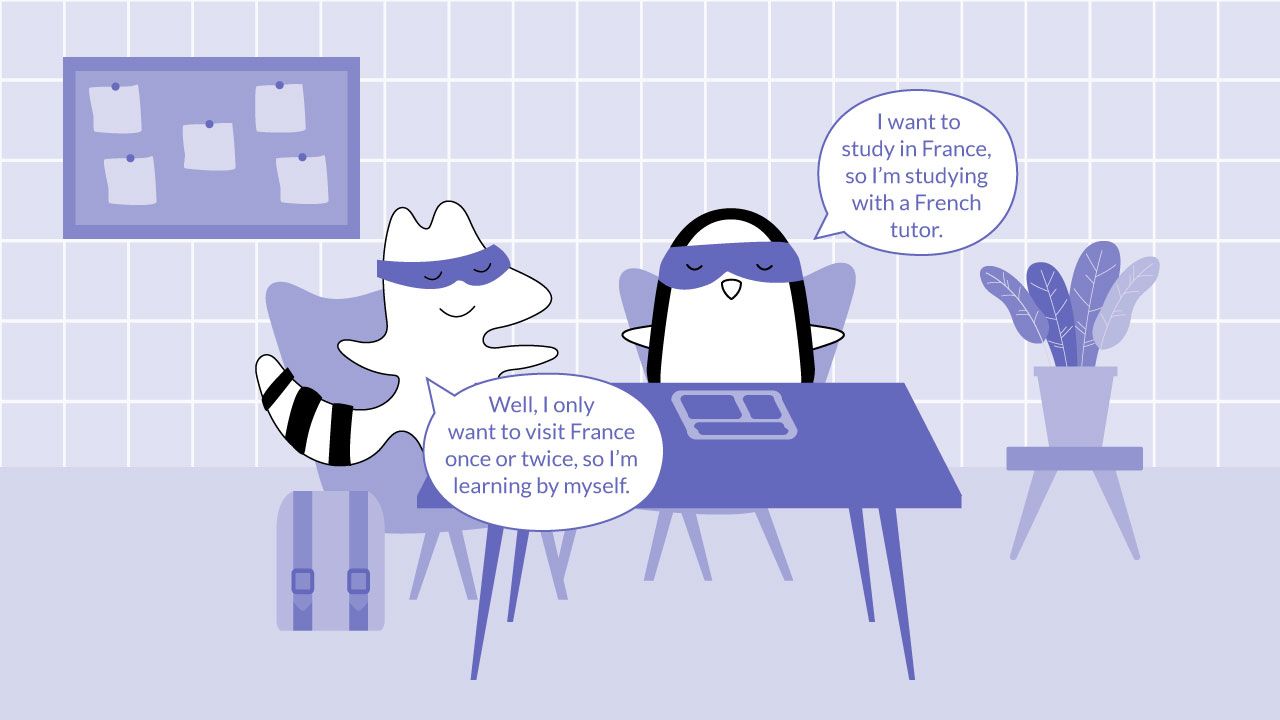
Mix and Match for the Best Results
It’s highly beneficial to mix and match different methods - for example, school classes and language learning apps, such as Langster. This way, you will be able to focus on different skills and make the learning process a little more interesting.
This will also allow you to repeat the information you’ve already learned, which is extremely helpful for boosting your memory and improving your skills.
Want to learn more about other methods to learn French and find the right ones for you? Check this article on our blog.
Helpful Tips for Learning French
Now that you know where to start, it’s time to get ready for your language journey.
Here are some of the main tips that will help you avoid some pitfalls and boost the learning process:
1. Practice Regularly
No matter what method you choose, it’s important to practice regularly if you want to learn French quickly. You can do this by using different exercises, such as flashcards, vocabulary lists, or practice conversations.
If you can, try to set a goal for how many hours you want to practice each week. This will help you stay motivated and track progress.
Apart from practicing by yourself, don't forget about other ways to repeat the information that you've learned: do your homework, watch or listen to something in French (if your level allows), or find someone to practice together - for example, a speaking partner.
Anyone can be your speaking partner - a fellow French learner, such as your classmate or a friend, or a French person.
Talking to native French speakers is one of the best ways to boost your French, as not only do you work on your conversation skills, but you also learn about French culture and the more casual variants of the language that people use.
There are quite a few different ways to find a speaking partner. You can search for a language exchange program in your area, use websites and apps that connect learners and native speakers, or simply ask someone from a language class you’re attending, among others.
2. Immerse Yourself in the Language
The best way to learn a language is to immerse yourself in it. You can do this by using different resources, such as movies, music, books, or articles in addition to your French lessons.
This will allow you to hear the language spoken in different contexts and get a better understanding of how it’s used. It’s also a great way to improve your pronunciation and boost your French vocabulary.
If you can, try to find a French-speaking environment to surround yourself with.
This can be done by living (even briefly) in a French-speaking country, attending a language school where French is spoken during each class, or by using different resources such as watching French-language TV channels or listening to a French radio station, as well as those we mentioned above.
Overall, try to use French whenever you can. It can be a little tricky if you’re a beginner, as you may not feel confident enough to use the language in everyday conversations, but there are quite a few ways to get started - from posting stickers with new words all over your home to running a bullet journal or put a time on your calendar to speak French.
Remember: the more exposure you have to the language, the better. Get creative and find an immersion method that suits you best.
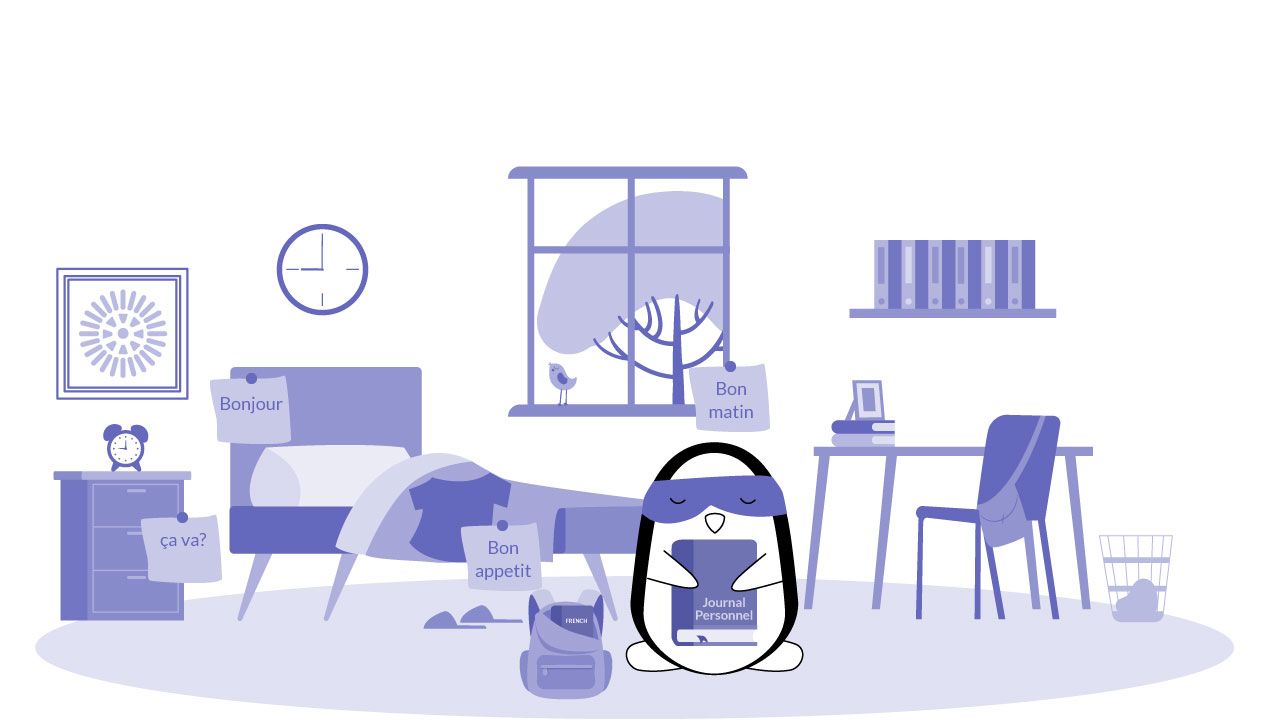
3. Set Realistic Goals
It’s important to set realistic goals and maintain a positive attitude for yourself when you start learning a new language. This way, you won’t get discouraged if you don’t meet your goals in the beginning.
Start by setting short-term and long-term goals.
A short-term goal could be to learn the basics of the language, such as the alphabet, numbers, and basic phrases. A long-term goal could be to be able to hold a conversation in French or to be able to read and understand French texts.
Make sure your goals are challenging, but also achievable. This will help you stay motivated and make progress.
4. Start with the Basics - the Right Basics
One of the most challenging things about learning a foreign language is getting used to the new sounds and pronunciation, as well as different grammar rules.
French is no exception - there are a few sounds that may be new to you, the pronunciation can be quite different from English, and the grammar can seem very strange at times.
It’s important to get started with the basics, such as the alphabet and the pronunciation of the letters - however, you also should get familiar with some key features of the French language in the beginning.
Things that you might need to focus on first are:
- noun gender and adjective agreement
- the use of articles
- verb conjugation and common irregular verbs
- basic verb tenses (present indicates, composed past, past participles, and simple future) as well as
Depending on your purpose, your teacher or tutor might also suggest you focus on other things - for example, specific vocabulary if you’re learning French for work, or the subjunctive mood, which is used very often in French if you want to move or travel to France.
One of the best methods to learn these important rules and improve pronunciation is by learning with audio lessons that have grammar explanations. You can also repeat phrases and words read out loud by a French speaker - this will help you improve your pronunciation and conversational skills.
5. Get a French Dictionary to Check French Words
One of the best ways to improve your vocabulary and your understanding of the French language is to get a good French dictionary. A good dictionary will have translations, examples, and information about verb conjugations.
It’s important to get a good English-French dictionary or even a French dictionary that will provide the correct translation and the meaning of the words. You can find a good French dictionary in bookstores, online, or in the app stores. Check this article to see which English-French dictionaries are the best.
6. Don’t Be Too Hard On Yourself - Make Mistakes
One of the biggest mistakes that beginner language learners make is that they get discouraged when they make mistakes. Remember, it’s completely normal to get things wrong when learning a new language, and you’ll get better with time.
If you're learning with a teacher or have a speaking partner, they will be able to correct your mistakes during lessons or meetings - don't be ashamed of that, as mistakes are a part of the French learning process.
If you make a mistake when talking to someone in French, and they point it out - don't worry, just say "sorry" if it was something serious, and go on.
Don't expect perfect pronunciation or a great level of grammar skills from yourself at any point in your learning journey. Even native speakers make mistakes - and this is normal. Learn from them, and go on.
7. Personalize Your Language Journey
No two people are exactly the same, so it makes sense that everyone learns differently. One way to make the learning process more interesting and effective is to personalize it.
This means finding different materials that interest you, setting your own goals, and even finding your own learning style.
If you like visual materials, for example, you can find a lot of French movies and TV shows to watch or find comics and manga that are written in French. If you prefer to learn through listening, you can find a lot of audio materials, such as podcasts and stories.
Depending on your level, you can also use different methods - for example, as a beginner, focus on materials made specifically for English speakers learning French. On the other hand, intermediate learners and advanced learners can use more French-for-French materials.
The more you make learning French your own, the more interested you will be in it - and the more progress you will make.
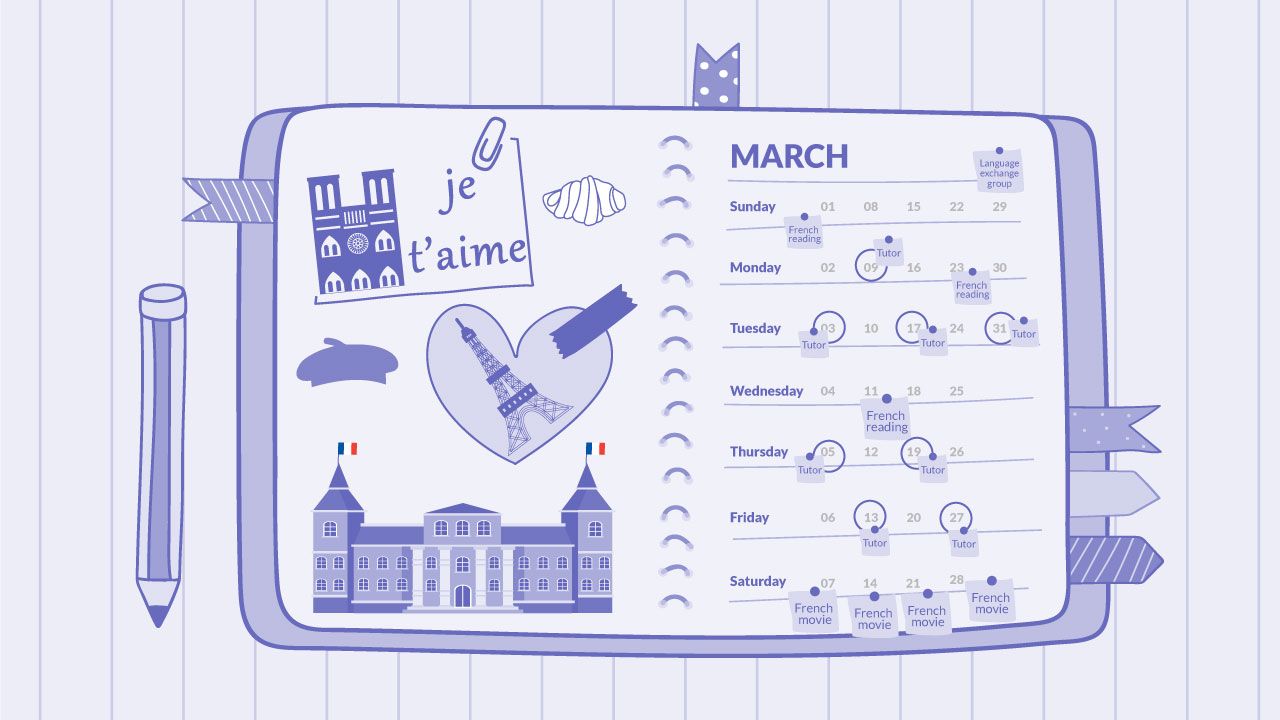
Final Thoughts on Learning French
When just starting your French journey, it can be challenging to determine what you need to focus on, which materials to use, and how to approach the process overall. Hopefully, this article has given you some answers to these questions as well as some ideas on how to personalize your language-learning process.
Remember that whatever the reason is, studying French should not be a burden for you. Try to make the road motivating and interesting, and include methods that will help you stay interested in the language - such as reading short stories (for example, with Langster) or finding fun interactive activities, such as speaking practice.
We hope that you will learn French in a way as quick and as enjoyable as possible - and that it will be full of new discoveries. Bon voyage!







